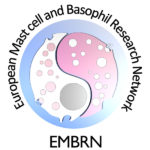Two postdoctoral positions are available jointly in the Department of Anesthesiology and Department of Pathology at Duke University Medical Center. Projects are funded for up to 4 years by recently approved grants from the NIH and the American Heart Association and will examine the role of mast cells at the vascular/tissue interface. Specifically, they will determine:
- Vascular pathology during the transition of sepsis to septic shock. This project aims to determine the triggering events for development of shock in sepsis using various mouse models and assays of vascular permeability, microvascular perfusion (photoacoustic imaging) and shock (pressure sensing telemetry implants).
- Karhausen J et al. Platelets trigger perivascular mast cell degranulation to cause inflammatory responses and tissue injury. Sci. Adv. 2020 doi: 10.1126/sciadv.aay6314.
- Choi HW et al. Perivascular dendritic cells elicit anaphylaxis by relaying allergens to mast cells via microvesicles. Science. 2018 doi: 10.1126/science.aao0666.
- Vascular permeability, neutrophil recruitment and neuronal injury after cardiac arrest. This project examines how mast cells shape neuronal outcomes in a mouse model of cardiac arrest using functional neuro-testing and tissue assays of inflammation and vascular injury.
- Wang W. et al. Development and Evaluation of a Novel Mouse Model of Asphyxial Cardiac Arrest Revealed Severely Impaired Lymphopoiesis After Resuscitation. J Am Heart Assoc. 2021 doi: 10.1161/JAHA.120.019142.
- Shen Y. et al. Activation of the ATF6 (Activating Transcription Factor 6) Signaling Pathway in Neurons Improves Outcome After Cardiac Arrest in Mice. J Am Heart Assoc. 2021 doi: 10.1161/JAHA.120.020216.
We apply a wide spectrum of techniques used in Molecular-, Cellular Biology, and Immunology, advanced in vivo approaches in mice and strains of genetically modified mice, and have access to biobanked clinical samples for confirmatory analysis. Both projects are highly multidisciplinary and involve close collaborations with researchers from Bioengineering, Infectious Diseases and Neuroradiology at Duke, and from the Department of Biochemistry and Biophysics at UNC (20min from Duke).
Interested candidates should provide cover letter, CV and contact information of 2 references. Please send applications to Dr. Jörn Karhausen, Department of Anesthesiology (jorn.karhausen@duke.edu) or Dr. Soman Abraham, Departments of Pathology, Immunology, and Molecular Genetics and Microbiology (soman.abraham@duke.edu).
